Hello! Join us today as we chat with Icelandic author Andri Snær Magnason.
A few weeks ago I attended The Reykjavík International Literary Festival, a small yet delightfully warm and open lit festival in what I can only call one of the most beautiful places I have ever been to. As part of the event I was able to connect with Icelandic authors and had the pleasure of meeting Andri Snær Magnason, author of the excellent LoveStar (a nominee of the Philip K Dick Award 2013) and The Story of the Blue Planet, among other works.
With me today to talk about books, Iceland, nature, technology and more, is Andri Snær Magnason!
The Book Smugglers: As an introduction to those who don’t know you yet: You are an Icelandic author of various novels for both adults and children. How long have you been writing and publishing? How many of your books have been translated into English?
Andri: My first book came out exactly 20 years ago, a collection of strange poetry actually called “The Verse Smuggler and the Poetry Heist”. since then I have written about 9 books, 4 plays and a documentary film. Four of my books are translated to English: The Story of the Blue Planet is out in 30 languages and won the UKLA Award in the UK last year; LoveStar, my Sci-Fi novel is available and Dreamland, a Self Help Manual for a Frightened Nation – a non fictional book using speculative elements against mad industrial plans of destroying our highlands. My newest book – Tímakistan has just been translated and we are talking to publishers about that one. I also have a poetry book fully translated and my play, Blue Planet has been performed in English in Canada and Chicago.
The Book Smugglers: Most of your books – and that is certainly true of LoveStar and The Story of the Blue Planet – have a speculative fiction element. How do genre definitions work in Icelandic literature and bookselling? Are you considered a Fantasy or Science Fiction writer back home?
Andri: I have been genre surfing from the start, started making poetry published by a local supermarket based on the Divine Comedy by Dante, Dreamland – my non fiction book was a bestseller, so many think of me as a political writer and activist. LoveStar was always spoken of as one of the “novels” so I never had to fight to claim it as “real” literature as sometimes happens with Sci-Fi. The Story of the Blue Planet won the Icelandic literary award in fiction in general and was the first children’s book to win that award, I was 25 at the time so I smuggled them all into the genre of mainstream literature never having to fight for recognition. But I might have been an outsider among the outsiders that are writing in genre, but I think the Philip K. Dick nomination fixed that. But people expect anything from me – poetry, a play, a fairytale or a political manifesto.
The Book Smugglers: LoveStar, one of your novels available in English won the Philip K Dick special citation of excellence in 2012. LoveStar is a dystopian alternate future story that deals with the advance of information technology. Originally published in 2002, many of the predictions made in Lovestar have proven to be quite portentous! It’s been almost 15 years since its original publication in Iceland–how do you feel when you look back at your novel now and its predictions?
Andri: I was quite frustrated at first when everything I read about information technology was almost like describing a chapter or a device in my book and I was getting constant emails from friends saying I would have made that app or device – if I had not put all the ideas into a novel written in a language stranded on this island. But then I started to think of the books that influenced me the most like Vonnegut, Orwell, Bulgakoff and books like the War of the Newts by Capek that came out in 1936, not to mention all the ancient mythological stuff that I love – I just relaxed, if many of my favourite sci fi writers are dead why should I worry about a decade or two? LoveStar is not really about predicting technology, it’s about ideas that go out of control. The book has done well in the US and it just came out in France and was considered rather new and original. In time it might move from the sci-fi shelf in the stores to non fiction but I hope it will still be a good book.
The Book Smugglers: Your award-winning novel for children, The Story of the Blue Planet, is a story set in an alternate world inhabited only by children and where technology is nonexistent. Did you write this novel as a counterpoint to LoveStar?
Andri: Someone once suggested LoveStar, The Blue Planet and Dreamland to be a trilogy. Would be an interesting package with non fiction, sci fi and children’s book in the same box. The Blue Planet came first and there I am trying to write some kind of contemporary mythology. Mythology was all created before we know we were living on a planet, so I wanted to update it. The book is a tribute to everything that inspired me and scared me the most when I was a child, and about things I wanted to write about but are too childish to write about for grown ups. Things like, friendship, peace, love, butterflies and poop. I wanted to make a new archetype of a villain based on a man that sold my sons’ great grandmother a $5000 vacuum cleaner. I thought I should call the police but then his face was in the newspaper, not as a wanted person but as a successful motivational speaker. I wondered what would happen on a perfect planet if such a man crash landed with the motivation of bringing joy and happiness.
The Book Smugglers: When we met at the festival, you talked about your most recent work, Tímakistan (translated as “Time Casket”)–a children’s book that had me immediately hooked. Can you tell us a bit more about it?
Andri: Thank you. The Time Casket is about a king that has conquered the world but he thinks it is very unfair that he doesn’t get more time than others. He grieves that his beautiful princess will grow old and die like any common person, like she wasn’t the greatest treasure on the planet. He demands an answer, but nobody seems to be able to fix the problem. But one day a group of dwarves come with something that looks like a crystal casket. It’s actually not crystal – its woven with spider silk and so densely woven that time can not penetrate the walls. Most of our life is a waste of time, 1/7th of our life is Monday. That in itself is an existential tragedy. 1/6th of our life is February and November. So when the casket is closed, and opened a day, a week or a year later – the princess feels like only one moment passed. But this goes out of hand, the princess becomes so precious, that no day is worth her presence anymore. One day a boy breaks into the castle to steal her necklace – she finds out that she has been 20 years in the casket, the king has gone mad, the kingdom is crumbling and the king had not intended to open the casket until everything was perfect again.
The Book Smugglers: In addition to being a prolific author, you are also a keen environmentalist. Can you expand on the environmental work that you do? How is your environmental work reflected in your writing?
Andri: Well, as many know Iceland is a very majestic, inspiring and beautiful place, because of all the things we call nature. Many engineers and businessmen see no nature but only “still untapped” resources, or “the key to future growth”, or “a great opportunity for heavy industry”. We have many rivers and waterfalls and nesting places for birds that are essential for a whole species. The government had a plan to dam most of our rivers to power international aluminum smelters with “clean” energy. One smelter uses more energy than one million people, and in the USA alone enough aluminum cans are thrown away to renew the total commercial airfleet four times a year. So this made me very angry, thinking about the great beauty that was to be destroyed for disposable cans and also more destructive things like tanks and bombs. So that insight made me more political, directly and indirectly – it can come through the main concept, through allegories, or direct approach like in Dreamland.
The Book Smugglers: What would you say are the main differences in writing for children versus writing for adults? Do you have a preference?
Andri: My favorite books are of all types of genres but I think that a good children’s book can be the most important thing you can write. If I think of the 10 most important books in my life – half of them are children’s books. If a parent tells you that the family just spent a week in your book, or a child learned to read through your book or a 13 year old boy put down his computer game to read your book, then you have done something important. I never find writing really easy, I make many drafts, look endlessly for the right words and approach and am always envious of writers that can cook up a new book in a few months. I don’t see a great difference between forms, not even theater and film. It all feels like it is coming from the same source.
The Book Smugglers: And now for the fun part – 5 quick questions
Which Icelandic work in translation would you recommend to the uninitiated?
Maybe The Blue Fox by Sjón, Independent People by Halldór Laxness, or Egils Saga.
Favorite non-Icelandic author?
Probably Orwell.
Favorite children’s book?
I would say The Brothers Lionheart by Astrid Lindgren.
Are you looking forward to the new Star Wars movie?
I am still recovering from the Jar Jar period. But maybe the hype will catch up with me.
And finally, a question we ask all of our interviewees: We Book Smugglers have faced condemnation because of the sheer volume of books that we carry back home on a daily basis. As such, we have on occasion resorted to “smuggling books” home to escape judgmental, scrutinizing eyes. Have you ever had to smuggle books?
Well yes, that is a problem, I stuff about one Ikea Billy bookshelf every year. Actually my wife might smuggle them out of the house, as I am incapable of getting rid of books.
Andri Snær Magnason is an Icelandic writer, born in Reykjavik on the 14th of July 1973. His most recent book Tímakistan won the Icelandic literary Award and is nominated for the Nordic Council Children’s book Award. Andri has written novels, poetry, plays, short stories, essays and CD’s. He is the codirector of the documentary film Dreamland. His work has been published or performed in more than 30 countries. His novel, LoveStar was nominated for the Philip K Dick Award 2013, was chosen “Novel of the year” by Icelandic booksellers and received the DV Literary Award. His children’s book, The Story of the Blue Planet, was the first children’s book to receive the Icelandic Literary Prize and has been published or performed in 26 countries. The Story of the Blue Planet received the Janusz Korczak Honorary Award 2000 the West Nordic Children’s Book Prize 2002 and The Green Earth Honor Award 2013. The play from the story has been performed in theaters in Finland, Swiss, Iceland and Canada. Andri has collaborated with various artists in the fields of activism, architecture and theater – mostly with a band called múm. Andri has been active in the fight against the destruction of the Icelandic Highlands. His book – Dreamland – a Self Help Manual for a Frightened Nation takes on these issues. Dreamland has been published in English, Danish, German, Spanish and Japanese and has become a feature length documentary film. Footage from Dreamland and an interview with Andri can be seen in Charles Ferguson’s Oscar winning documentary – Inside Job. Andri can be contacted here: andrimagnason@gmail.com. Andri Magnason is the winner of the Kairos Award of 2010 – granted by the Alfred Toepfer institute in Hamburg.
Andri comes from a family of doctors and nurses. His father is a doctor, his mother is a nurse, his sister is a brain surgeon, his brother is in computers but his wife is a nurse. Andri is married to a nurse but her sister is a doctor, his mother-in-law is a nurse and her sister too. His great grandfather was a doctor in the West Fjords of Iceland. His grandfather, Björn Thorbjarnarson is married to a nurse from Toronto, he was chief surgeon at the New York Hospital and a professor at Cornell University. Björn wrote the bestseller: Surgery of the Bilinary Tract, 1975. Andri lives in Reykjavík, he has four children.


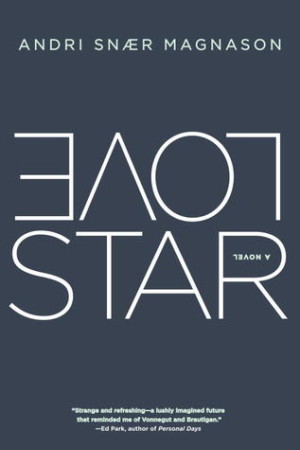
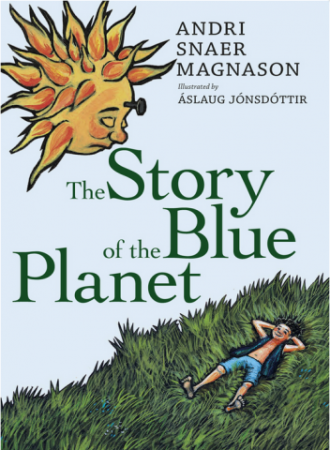
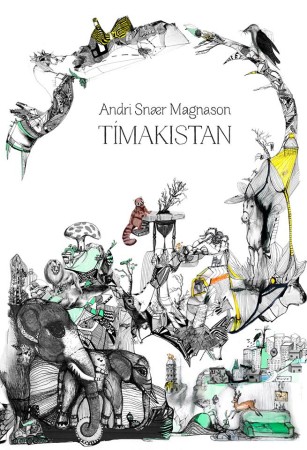
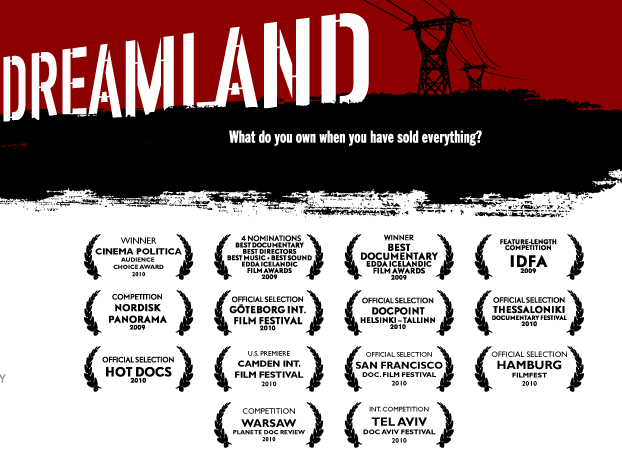
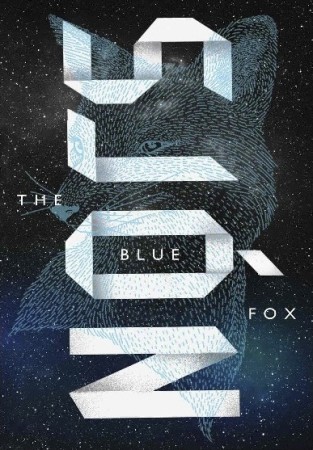
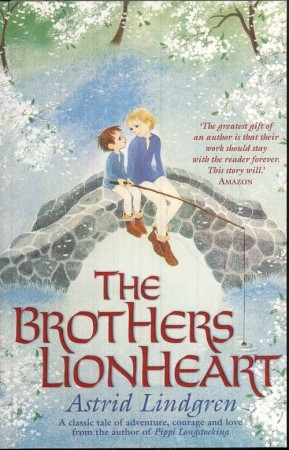










8 Comments
lisalc
November 19, 2015 at 7:52 pmTimakistan sounds awesome, bur doesn’t seem to be available here yet. So I will turn to The Story of the Blue Planet, which I see has a character named Gleesome Goodday, a dreamcometruemaker. I haven’t started it, but my hat’s already off to the author and translator. Thanks for a great interview.